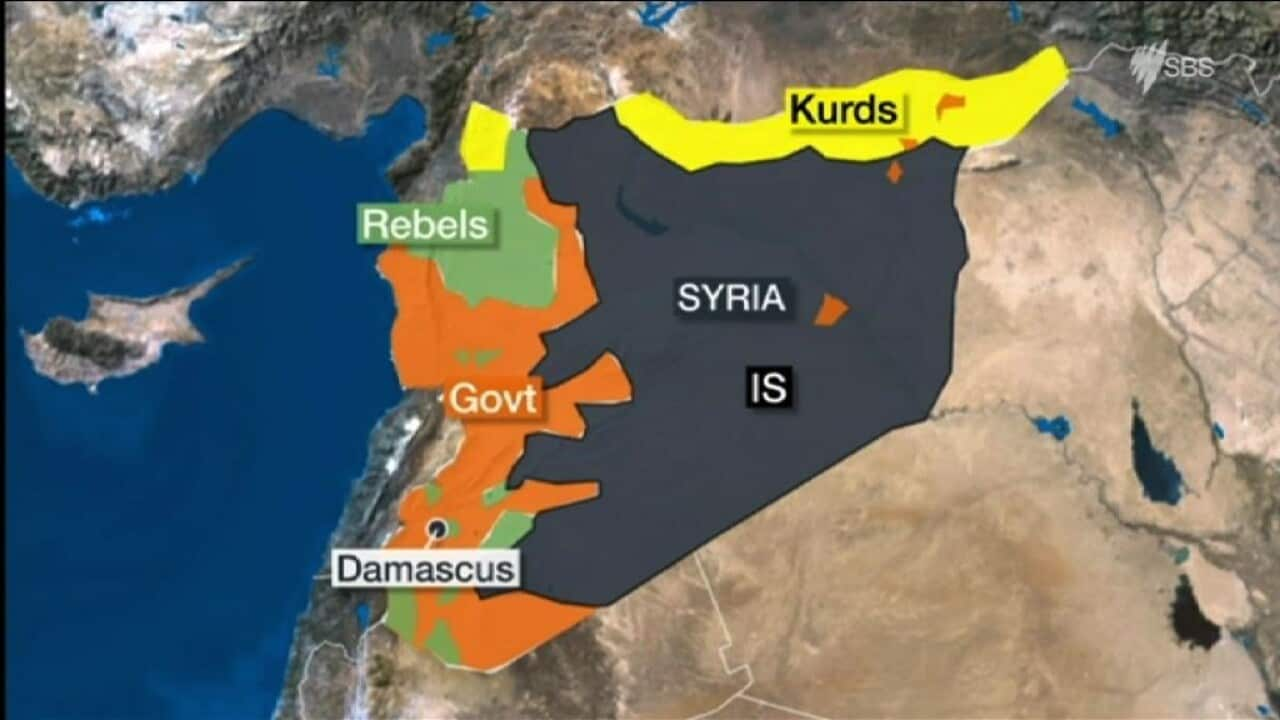Australia will begin airstrikes against Islamic State targets in Syria.
Prime Minister Tony Abbott made the announcement on Wednesday, but did not rule out boots on the ground in the future.
Former commanding officer Jim Molan said that Australia “should be enhancing the ability of the aircraft to work in close proximity to the Iraqi troops” if the situation did not improve.
“We should accompany the Iraqi troops into battle which may require additional forces from the US and other countries, but only as mentors,” he said.
“And we should be doing a lot more in relation to these kinds of things.”
The strikes are set to be carried out on the grounds of collective self-defence of Iraq.
Australia joins six other coalition nations conducting airstrikes in Syria - including the United States, Bahrain, Canada, Jordan, Saudi Arabia and the United Arab Emirates – but legal experts have expressed concerns about how they fit with international law.
Ben Saul from the University of Sydney said the law has been unclear since the attacks of 9/11, when the United States exercised self-defence over Al-Qaeda.
Mr Saul said that fact Iraq is “clearly” under attack by Islamic State semi-justifies its right to self-defence against them, and their call for assistance from foreign powers such as Australia.
But he said that while there is international sympathy for efforts to deal with attacks from Islamic State militants, international law traditionally states that self-defence occurs when one state attacks another state.
Currently, Islamic State is not considered to be a state.
“The problem is that law came from a world in 1945, when it was expected that the Security Council would deal with other threats: like terrorist groups or insurgent groups operating in one country and attacking another across the border,” he said.
Australia is answering a call made by the United States last month for increased assistance in the fight against Islamic State militants.
The announcement has received bipartisan support, but Opposition Leader Bill Shorten said it is conditional.
“Our alliance, as important as it is, is in of itself not a sufficient reason to act,” he said.
“This is why Labor seeks clear and specific assurances from the government… The ADF operations have to be constrained to the collective self-defence of Iraq.”
Mr Shorten stressed the importance of notifying the United Nations Security Council, as well as enabling a parliamentary debate on the long-term strategy for Australia's role in Iraq.
Meanwhile, Greens leader Richard Di Natale has called for a frank and open debate before a decision is locked in.
"To ensure that what we are doing is going to a war that is legal, going to a war that is not based on the self-interest of a Prime Minister who is desperate to save his political hide,” he said.

